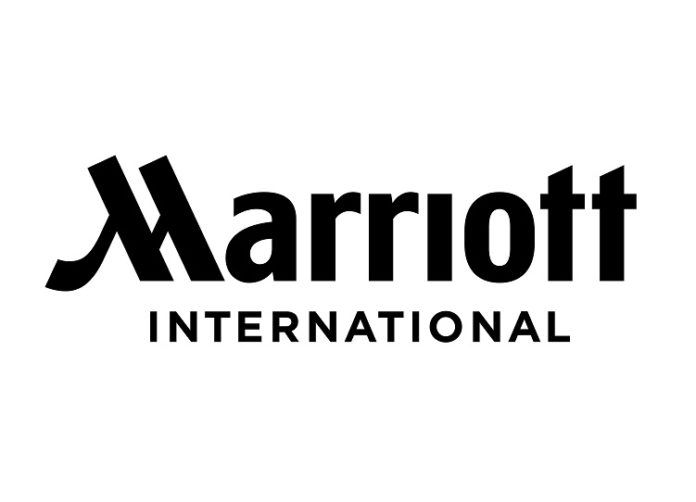A massive database breach was reported by Marriott Hotels and Resorts at their Starwood brand on November 30. In the meantime, Marriott Security procedures had been in the global spotlight resulting in various legal and criminal actions taken by authorities around the world against the largest hotel chain in the world. A PR nightmare has been unfolding for Marriott resulting in making the brand speechless in avoiding responses to the media.
Today Marriott informed all potential victim and hotel guests of this crime of what they call a “security incident”. The email explains to potential crime victims, Marriott customers with a record in the Starwood Hotels and Resort network:
On September 8, 2018, Marriott received an alert from an internal security tool regarding an attempt to access the Starwood guest reservation database. Marriott quickly engaged leading security experts to help determine what occurred. Marriott learned during the investigation that there had been unauthorized access to the Starwood network since 2014. Marriott recently discovered that an unauthorized party had copied and encrypted information, and took steps towards removing it. On November 19, 2018, Marriott was able to decrypt the information and determined that the contents were from the Starwood guest reservation database.
Marriott has not finished identifying duplicate information in the database, but believes it contains information on up to approximately 500 million guests who made a reservation at a Starwood property. For approximately 327 million of these guests, the information includes some combination of name, mailing address, phone number, email address, passport number, Starwood Preferred Guest (“SPG”) account information, date of birth, gender, arrival and departure information, reservation date, and communication preferences. For some, the information also includes payment card numbers and payment card expiration dates, but the payment card numbers were encrypted using Advanced Encryption Standard encryption (AES-128). There are two components needed to decrypt the payment card numbers, and at this point, Marriott has not been able to rule out the possibility that both were taken. For the remaining guests, the information was limited to name and sometimes other data such as mailing address, email address, or other information.
Marriott reported this incident to law enforcement and continues to support their investigation. The company is also notifying regulatory authorities.
Marriott deeply regrets this incident happened. From the start, we moved quickly to contain the incident and conduct a thorough investigation with the assistance of leading security experts. Marriott is working hard to ensure our guests have answers to questions about their personal information with a dedicated website and call center. We are supporting the efforts of law enforcement and working with leading security experts to improve. Marriott is also devoting the resources necessary to phase out Starwood systems and accelerate the ongoing security enhancements to our network.
Marriott has taken the following steps to help you monitor and protect your information:
Dedicated Call Center
Marriott has established a dedicated call center to answer questions you may have about this incident. The call center is available in multiple languages. Our dedicated call center may experience high volume initially, and we appreciate your patience. Please check info.starwoodhotels.com for any updates to our call center contact details. The call center contact details are:
| Country | Phone | time & days | ||
| Australia | 1-800-270-917 | 24 Hours | Mon – Sun | |
| Austria | 0800-281462 | 0900 – 2100 CET | Mon – Sun | |
| Belgium | 0800-708-43 | 0900 – 2100 CET | Mon – Sun | |
| Brazil | 0-800-724-8312 | 0900 – 2100 Brasilia ST | Mon – Sun | |
| Canada | 877-273-9481 | 0900-2100 EST | Mon – Sun | |
| China | 4001839188 | 0900 – 1800 China ST | Mon – Sun | |
| China | +86 20 38157000 | 0900 – 1800 China ST | Mon – Sun | |
| France | 0805-080216 | 0900 – 2100 CET | Mon – Sun | |
| Germany | 0800-180-1978 | 0900 – 2100 CET | Mon – Sun | |
| India | 000-800-050-1531 | 24 Hours | Mon – Sun | |
| Italy | 800-728-023 | 0900 – 2100 CET | Mon – Sun | |
| Japan | 0120901011 | 0900 – 1800 Japan ST | Mon – Fri | |
| Japan | +81 3 5423 6539 | 0900 – 1800 Japan ST | Mon – Fri | |
| New Zealand | 0800-359805 | 24 Hours | Mon – Sun | |
| Mexico | 01-800-099-0742 | 0900 – 2100 EST | Mon – Sun | |
| Russia | 8-800-100-6925 | 0900 – 2100 Moscow | Mon – Sun | |
| Singapore | 800-492-2405 | 24 Hours | Mon – Sun | |
| South Korea | 007988171758 | 0900 – 1800 Korea ST | Mon – Fri | |
| South Korea | +81 3 4334 2202 | 0900 – 1800 Korea ST | Mon – Fri | |
| Spain | 900-905407 | 0900 – 2100 CET | Mon – Sun | |
| Switzerland | 0800-561-876 | 0900 – 2100 CET | Mon – Sun | |
| United Arab Emirates | 8000-3201-34 | 0900 – 2100 Gulf | Mon – Sun | |
| UK | 0-808-189-1065 | 0800 – 2000 GMT | Mon – Sun | |
| USA | 877-273-9481 | 0900 – 2100 EST | Mon – Sun |
Marriott began sending emails on a rolling basis on November 30, 2018 to affected guests whose email addresses are in the Starwood guest reservation database.
Marriott is providing guests the opportunity to enroll in WebWatcher free of charge for one year. WebWatcher monitors internet sites where personal information is shared and generates an alert to the consumer if evidence of the consumer’s personal information is found. Due to regulatory and other reasons, WebWatcher or similar products are not available in all countries. Guests from the United States who complete the WebWatcher enrollment process will also be provided fraud consultation services and reimbursement coverage for free.
The section below provides additional information on steps you can take. If you have questions about this notification and to enroll in WebWatcher (if it is available in your country/region), please visit info.starwoodhotels.com.
Starwood brands include: W Hotels, St. Regis, Sheraton Hotels & Resorts, Westin Hotels & Resorts, Element Hotels, Aloft Hotels, The Luxury Collection, Tribute Portfolio, Le Méridien Hotels & Resorts, Four Points by Sheraton and Design Hotels. Starwood branded timeshare properties (Sheraton Vacation Club, Westin Vacation Club, The Luxury Collection Residence Club, St. Regis Residence Club, and Vistana) are also included.
Regardless of where you reside, below are some additional steps you can take.
Change your password regularly. Do not use easily guessed passwords. Do not use the same passwords for multiple accounts.
Review your payment card account statements for unauthorized activity and immediately report unauthorized activity to the bank that issued your card.
Be vigilant against third parties attempting to gather information by deception (commonly known as “phishing”), including through links to fake websites. Marriott will not ask you to provide your password by phone or email.
If you believe you are the victim of identity theft or your personal data has been misused, you should immediately contact local law enforcement.
We remind you it is always advisable to be vigilant for incidents of fraud or identity theft by reviewing your account statements and free credit reports for any unauthorized activity. You may obtain a copy of your credit report, free of charge, once every 12 months from each of the three nationwide credit reporting companies. To order your annual free credit report, please visit www.annualcreditreport.com or call toll free at 1-877-322-8228. Contact information for the three nationwide credit reporting companies is as follows:
| Equifax, PO Box 740241, Atlanta, GA 30374, www.equifax.com, 1-800-685-1111 |
| Experian, PO Box 2002, Allen, TX 75013, www.experian.com, 1-888-397-3742 |
| TransUnion, PO Box 2000, Chester, PA 19016, www.transunion.com, 1-800-916-8800 |
If you believe you are the victim of identity theft or have reason to believe your personal information has been misused, you should immediately contact the Federal Trade Commission and/or the Attorney General’s office in your state. You can obtain information from these sources about steps an individual can take to avoid identity theft as well as information about fraud alerts and security freezes. You should also contact your local law enforcement authorities and file a police report. Obtain a copy of the police report in case you are asked to provide copies to creditors to correct your records. Contact information for the Federal Trade Commission is as follows:
Federal Trade Commission, Consumer Response Center, 600 Pennsylvania Avenue, NW Washington, DC 20580, 1-877-IDTHEFT (438-4338), www.ftc.gov/idtheft
| If you are a resident of Connecticut, Maryland, Massachusetts, North Carolina, or Rhode Island, you may contact and obtain information from your state attorney general at: |
|
| If you are a resident of Massachusetts or Rhode Island, note that pursuant to Massachusetts or Rhode Island law, you have the right to file and obtain a copy of a police report. You also have the right to request a security freeze. |
| If you are a resident of West Virginia, you have the right to ask that nationwide consumer reporting agencies place “fraud alerts” in your file to let potential creditors and others know that you may be a victim of identity theft, as described below. You also have a right to place a security freeze on your credit report, as described below. |
| Fraud Alerts: There are two types of fraud alerts you can place on your credit report to put your creditors on notice that you may be a victim of fraud—an initial alert and an extended alert. You may ask that an initial fraud alert be placed on your credit report if you suspect you have been, or are about to be, a victim of identity theft. An initial fraud alert stays on your credit report for at least 90 days. You may have an extended alert placed on your credit report if you have already been a victim of identity theft with the appropriate documentary proof. An extended fraud alert stays on your credit report for seven years. You can place a fraud alert on your credit report by contacting any of the three national credit reporting agencies. |
| Credit Freezes: You have the right to put a credit freeze, also known as a security freeze, on your credit file, free of charge, so that no new credit can be opened in your name without the use of a PIN number that is issued to you when you initiate a freeze. A security freeze is designed to prevent potential credit grantors from accessing your credit report without your consent. If you place a security freeze, potential creditors and other third parties will not be able to get access to your credit report unless you temporarily lift the freeze. Therefore, using a security freeze may delay your ability to obtain credit.
There is no fee to place or lift a security freeze. Unlike a fraud alert, you must separately place a security freeze on your credit file at each credit reporting company. For information and instructions to place a security freeze, contact each of the credit reporting agencies at the addresses below: |
|
| To request a security freeze, you will need to provide the following information: |
|
| The credit reporting agencies have one business day after receiving your request by toll-free telephone or secure electronic means, or three business days after receiving your request by mail, to place a security freeze on your credit report. The credit bureaus must also send written confirmation to you within five business days and provide you with a unique personal identification number (“PIN”) or password or both that can be used by you to authorize the removal or lifting of the security freeze.
To lift the security freeze in order to allow a specific entity or individual access to your credit report, or to lift a security freeze for a specified period of time, you must submit a request through a toll-free telephone number, a secure electronic means maintained by a credit reporting agency, or by sending a written request via regular, certified, or overnight mail to the credit reporting agencies and include proper identification (name, address, and Social Security number) and the PIN number or password provided to you when you placed the security freeze as well as the identity of those entities or individuals you would like to receive your credit report or the specific period of time you want the credit report available. The credit reporting agencies have one business day after receiving your request by toll-free telephone or secure electronic means, or three business days after receiving your request by mail, to lift the security freeze for those identified entities or for the specified period of time. To remove the security freeze, you must submit a request through a toll-free telephone number, a secure electronic means maintained by a credit reporting agency, or by sending a written request via regular, certified, or overnight mail to each of the three credit bureaus and include proper identification (name, address, and Social Security number) and the PIN number or password provided to you when you placed the security freeze. The credit bureaus have one business day after receiving your request by toll-free telephone or secure electronic means, or three business days after receiving your request by mail, to remove the security freeze. |
| Fair Credit Reporting Act: You also have rights under the federal Fair Credit Reporting Act, which promotes the accuracy, fairness, and privacy of information in the files of consumer reporting agencies. The FTC has published a list of the primary rights created by the FCRA (https://www.consumer.ftc.gov/articles/pdf-0096-fair-credit-reporting-act.pdf), and that article refers individuals seeking more information to visit www.ftc.gov/credit. The FTC’s list of FCRA rights includes: |
|
| If You Are A European Union Data Subject, and you want to complain to your Data Protection Authority, you may contact them at: |
|
| If You Are A Canadian Resident, and you want to complain to your privacy commissioner, you may contact them at: |
|






